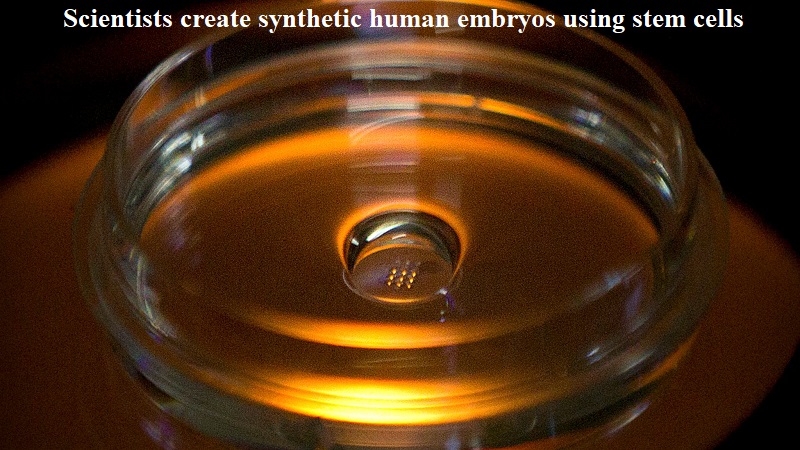
Scientists have achieved a groundbreaking advancement in the field of human reproduction by creating synthetic human embryos using stem cells, potentially revolutionizing the understanding of In Vitro Fertilization (IVF). This remarkable development eliminates the need for eggs and sperm in the creation of human embryos.
While the work was announced during a plenary address at the International Society for Stem Cell Research’s annual meeting in Boston, the complete details of the research conducted at the Cambridge-Caltech lab have not yet been published in a journal paper.
Professor Magdalena ?ernicka-Goetz from the University of Cambridge and the California Institute of Technology described the human model as the first three-lineage human embryo model that specifies amnion and germ cells, which are the precursor cells of egg and sperm. The model is exclusively composed of embryonic stem cells, offering a stunning representation of human development.
These synthetic embryos, created from stem cells, lack a beating heart or the beginnings of a brain. However, they possess the cells that give rise to the placenta, yolk sac, and the embryo itself.
The significance of synthetic embryos lies in their potential to provide critical insights into the biological causes of recurrent miscarriages, as stated by scientists cited in The Guardian. The Lancet published a report in April 2021 estimating that 23 million miscarriages occur worldwide each year.
Additionally, understanding the “black box” period of human development, occurring between 16 or 17 days after fertilization and more than a week after the embryo attaches to the uterine lining, is a fundamental objective of this research. Currently, scientists are legally allowed to cultivate embryos in the laboratory for up to 14 days. Beyond that, they rely on pregnancy scans and donated embryos for further developmental observations.
Robin Lovell-Badge, the head of stem cell biology and developmental genetics at the Francis Crick Institute in London, highlighted the significance of modeling normal human embryonic development using stem cells. This approach provides valuable insights into the initiation of human development, potential abnormalities, and reduces the need for early embryos in research.
The creation of synthetic human embryos marks an exciting advancement in reproductive science, opening doors to a better understanding of human development and potential breakthroughs in addressing issues such as recurrent miscarriages.

Post Your Comments